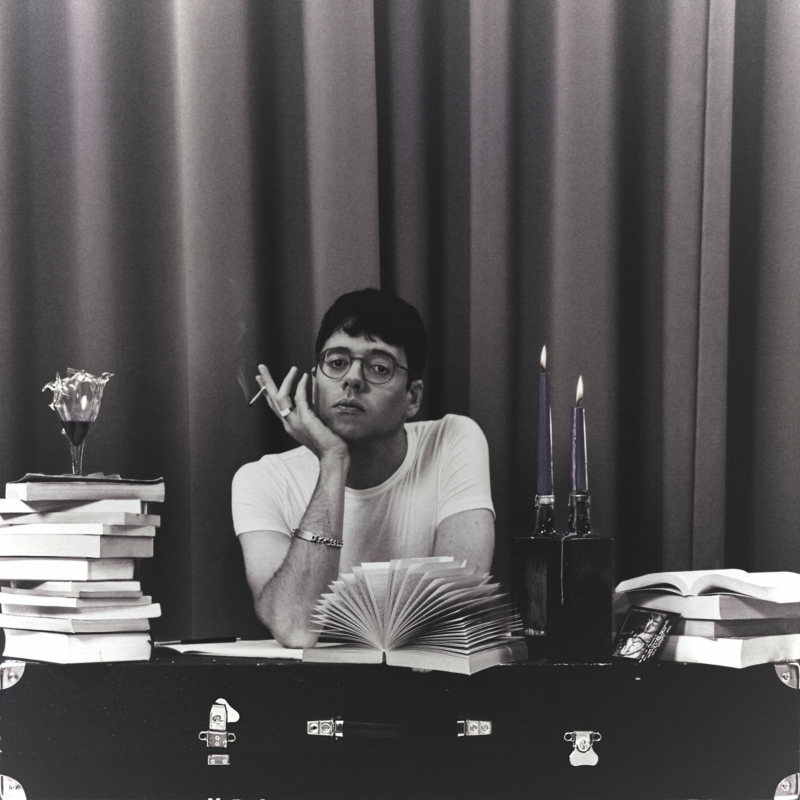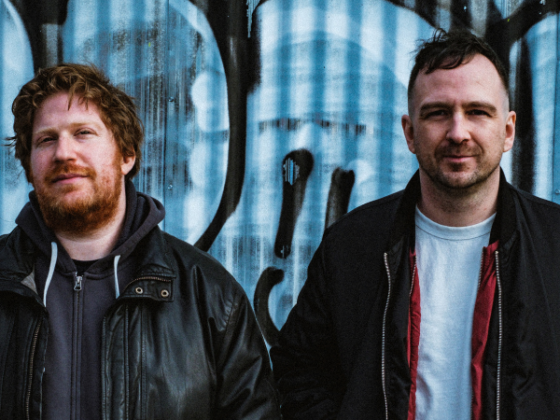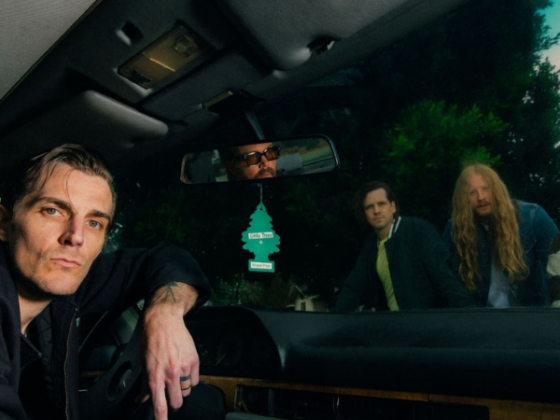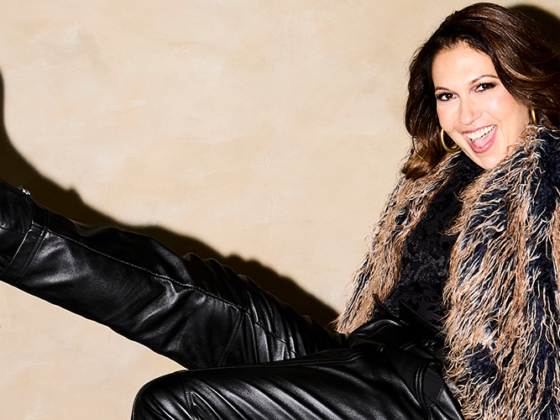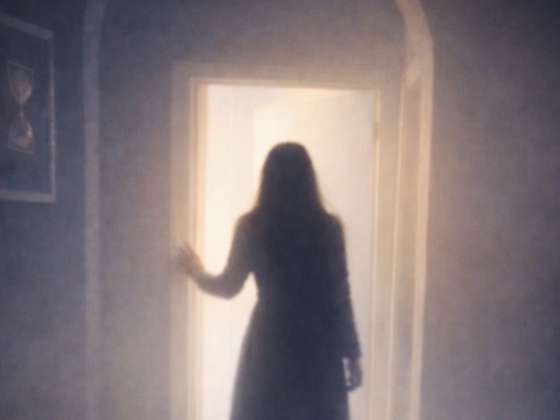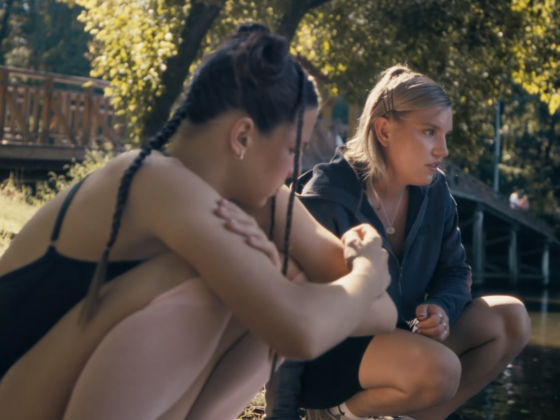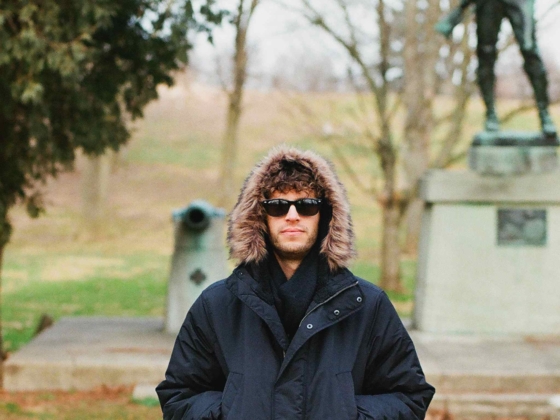Dressed Like Boys is the deeply personal solo project of Belgian singer-songwriter Jelle Denturck, known for his work with indie band DIRK. His debut album proves what we already knew: that art, society, and politics move in parallel lines, creating profoundly interconnected concepts that shape our understanding of identity and belonging.
Denturck explores vulnerable territory throughout the record, examining his life as a gay man, love, grief, and past homophobic experiences with confessional honesty. His sound blends '70s piano ballads with indie folk, '60s sunshine pop, and experimental recording techniques, creating something both nostalgically lush and refreshingly forward-thinking.
Opening track "Nando" introduces us to Denturck's universe with tender vocals that pierce straight to the soul. "Nando, can you feel the sting / Long time since you looked me in the eyes," he croons in this declaration of love to his partner. He's unafraid to confess "The only time you left me / Was the only time I cried," building to an exceptional outro with soaring choral vocals and rock influences executed with impeccable taste.
"Lies" immediately grabs attention with sophisticated strings and '70s flourishes, showcasing remarkable maturity in both lyricism and musicality. The closing guitar solo elevates the track further, intensifying feelings of acceptance, guilt, and repentance in this singular indie pop moment.
Ballad "Pinnacles" finds Denturck questioning society while harboring doubts about whether conformity can bring happiness: "You believe a quiet life, a steady job, a savings plan / Can save me from myself?" The track ends with the heartbreaking admission "I need to get away."
"Pride" stands as a powerful song-manifesto addressing violence and difficulties faced by marginalized groups, specifically recounting experiences where Jelle and his boyfriend faced physical assault. It's a protest song about queer bigotry that cuts deep. "Please don't pick a fight / Swallow your pride," he tells his partner, pleading to avoid confrontation. This couplet ends each verse, demonstrating his desperate need for them to set aside their wants and selves momentarily for protection. The song contains scenes that countless queer individuals can recognize, situations that can easily awaken memories from their own lives, whether visible or not. Jelle speaks not just for himself but for an entire community of people. In the final verse, hope emerges with his belief that someday everyone will find something to support them no matter what: "Stick with me and / I will watch you become / Anything you want."
"Healing" continues the album's cohesive musical journey without becoming repetitive, featuring dreamy elements and vocals that transport listeners. It captures a desperate attempt to win a losing battle, accepting defeat while hoping for brighter futures.
"Jaouad" pays tribute to Jaouad Alloul, achieving indie pop perfection with magical vocals and high-level lyricism. "Do you wanna be understood without having to be understandable?" Denturck asks, seemingly addressing each listener directly. As he's explained: "This song is about Jaouad Alloul. He contains multitudes. He is an actor, a writer, a singer. A gay man, a muslim, a drag queen. A freedom fighter. Above all, he is unafraid."
The track also delivers sharp sociopolitical commentary, cauterizing hypocrisy as he sings about "the Hungarian hypocrite" who "shimmy down the drain pipe / Doing things he helped prohibit", a reference to the scandal known as "Drain pipe Orban."
"Agony Street" opens with dreamy saxophone-type notes, the piano creating scenes reminiscent of the album cover where Jelle sits before his instrument with a glass of wine, raising it to toast "Sleepless nights forever."
"Stonewall Riots Forever" recalls the 1969 Stonewall Riots in another magnificent album moment. Delicate piano with added cello by Tamino creates a tender art pop anthem and protest song honoring the moment when nearly 400 people joined riots that lasted 45 minutes and resumed on succeeding nights, when legend says Marsha P. Johnson threw the first brick at Stonewall.
"Our Part of Town" surprises with a lo-fi piano style. The vocals recorded on his phone during a village walk while the piano captured in a local pub. Memories covered in love, melancholy, and anxiety offer glimpses of his homeland years.
"Finger Trap" delivers another heartbreaking ballad with Denturck's vocals hitting perfectly, his storytelling remaining mesmerizing as he establishes himself among his country's finest contemporary songwriters.
The outro of the album, "Gregor Samsa" brings the classics into focus, drawing inspiration from Franz Kafka's nouvelle, "The Metamorphosis" and its protagonist Gregor Samsa. Kafka's story follows a man who suddenly transforms into an insect, creating problems with those around him and his family, an individual who feels like he doesn't belong in society, doesn't fit into. Often, the choice of voluntary removal is justified, and no one can pretend they don't understand it. The track exploring themes of alienation and not belonging in society's constructed frameworks. Whether directly emerging from that Kafkaesque world or not, the closing track functions brilliantly as both confessional song and album outro.
It's a haunting finale that captures themes of alienation and transformation while showcasing Denturck's ability to weave literary references into deeply personal narratives.
Dressed Like Boys emerges as a rare debut. One that feels both deeply personal and universally resonant. Denturck has created something that transcends typical singer-songwriter fare, weaving queer identity, political consciousness, and raw vulnerability into a cohesive artistic statement. This isn't just promising; it's arrival. In an era where authenticity often feels manufactured, Denturck's unflinching honesty and musical sophistication mark him as an essential voice worth following closely. The revolution will be sung, and it sounds like this.

